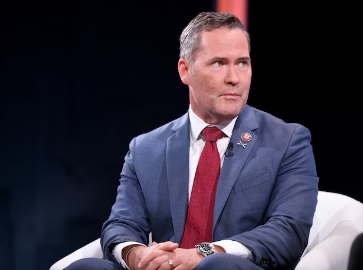
Washington — In a dazzling choice that could have significant consequences for the 2024 official political race, the Colorado High Court on Tuesday decided that previous President Donald Trump is excluded from holding office once more and requested the secretary of state to eliminate his name from the state’s essential polling form.
The court stopped its choice until Jan. 4, one day with maybe some time to spare for ensuring the possibility for the state’s March 5 primary, and said the delay will stay set up assuming Trump asks the U.S. Supreme Court to survey the choice by then. Trump’s mission has said he will do precisely that, meaning his name will probably stay on the state’s March 5 primary voting form all things considered.
What to be familiar with the Colorado High Court’s Trump administering, and what occurs straightaway
In any case, the choice by the Colorado High Court’s 4-3 larger part tees up a high-stakes confrontation in the U.S. High Court over the sacred arrangement at the focal point of the case, one that could compromise Trump’s qualification for the administration assuming the high court votes down him. The Colorado court discovered that Part 3 of the fourteenth Amendment, known as the rebellion proviso, bars Trump from holding government office because of his activities regarding the Jan. 6, 2021, assault on the Legislative center.
“We presume that since President Trump is excluded from holding the workplace of President under Segment Three, it would be an improper demonstration under the Political decision Code for the Secretary to list President Trump as a competitor on the official essential polling form,” the court’s greater part composed.
The Colorado Supreme Court’s viewpoint in the Trump case

As they would see it, the four judges in the larger part recognized that “we travel in strange area, and that this case presents a few issues of initial impression.” Judges Richard Gabriel, Melissa Hart, Monica Márquez and William Hood shaped the larger part.
The judges dismissed claims from Trump’s attorneys that the break of the Legislative hall by his allies on Jan. 6 was not an uprising and on second thought reasoned that the record for the situation “plentifully settled that the occasions of January 6 comprised a purposeful and public utilization of power or danger of power by a gathering to impede or forestall the U.S. government from making the moves important to achieve the tranquil exchange of force in this country.”
The greater part tracked down that Trump “didn’t simply affect the revolt,” however “kept on supporting it” by proceeding to encourage then-VP Mike Pence to singularly throw out state Discretionary School votes.
“These activities comprised clear, deliberate, and direct cooperation in the uprising,” the greater part composed.
The judges composed that tolerating Trump’s contention would mean the secretary of state is feeble to eliminate somebody who doesn’t meet the Constitution’s different prerequisites to become president.
“Were we to take on President Trump’s view, Colorado couldn’t bar from the polling form even up-and-comers who obviously don’t fulfill the age, residency, and citizenship prerequisites of the Official Capabilities Provision of Article II,” they composed. “It would imply that the state would be weak to prohibit a 28 year-old, a non-occupant of the US, or even an unfamiliar public from the official essential polling form in Colorado.”
The minority’s contradicting sentiments in the Colorado Trump case
The three judges who were in the minority — Boss Equity Brian Boatright and Judges Carlos Samour and Maria Berkenkotter — each composed their own perspectives disagreeing with the decision. They each disagreed with different parts of the court’s viewpoint, and communicated worries about what they saw as an absence of fair treatment for denying Trump’s admittance to the essential polling form.
In his dispute, Boatright said that the segment of Colorado’s political race code under which the case was brought “was not sanctioned to conclude whether an up-and-comer participated in rebellion.”
Samour composed that the choice to banish Trump from the essential polling form “goes against the fair treatment convention.” The suit for the situation, Samour proceeded, “missed the mark concerning what fair treatment requests.”
Berkenkotter composed that she couldn’t help contradicting the greater part’s decision that the state’s political race code “approves Colorado courts to conclude whether an official essential competitor is excluded” under Segment 3, and cautioned that the larger part’s “approach appears to have no perceptible cutoff points.”







